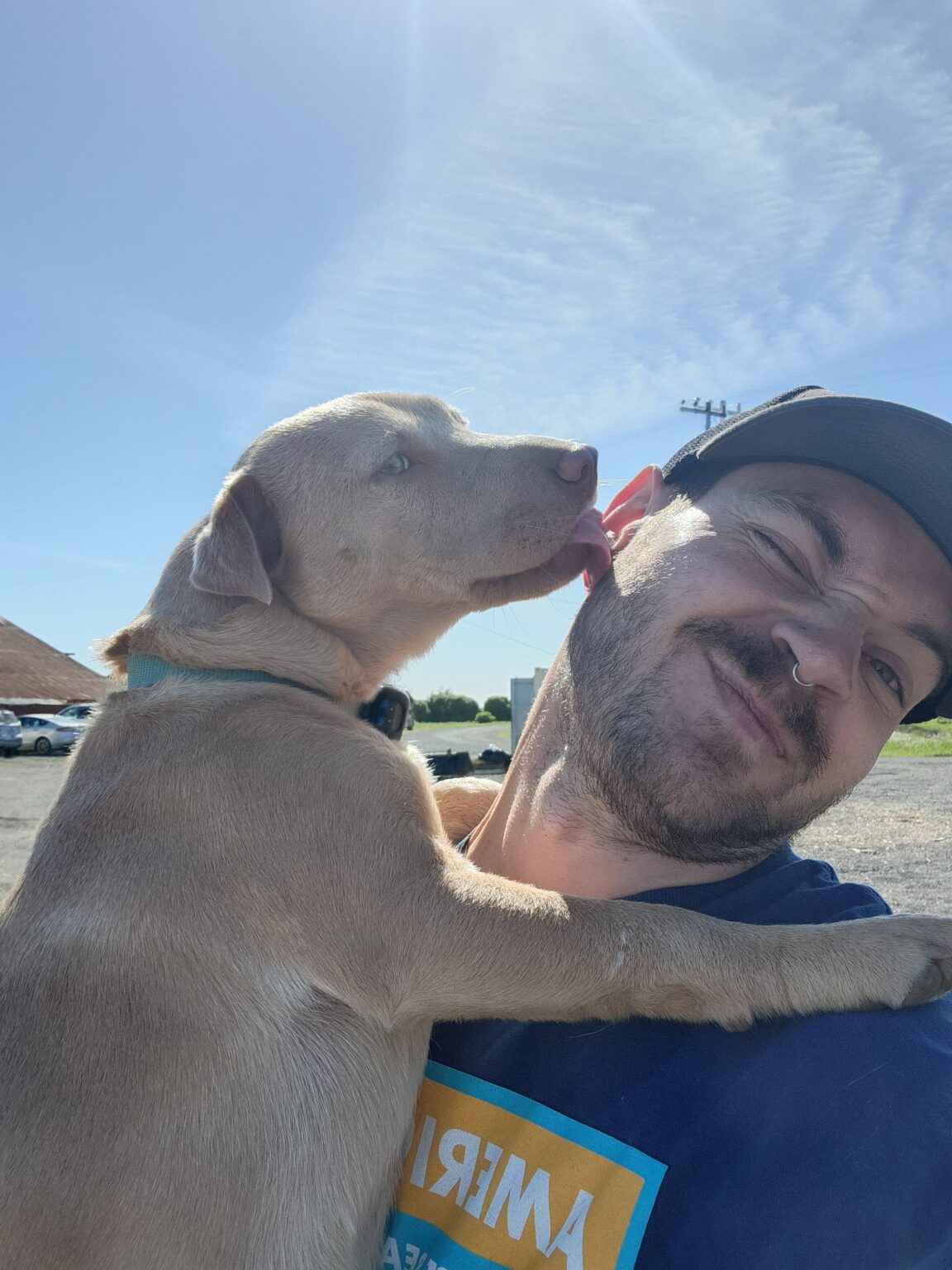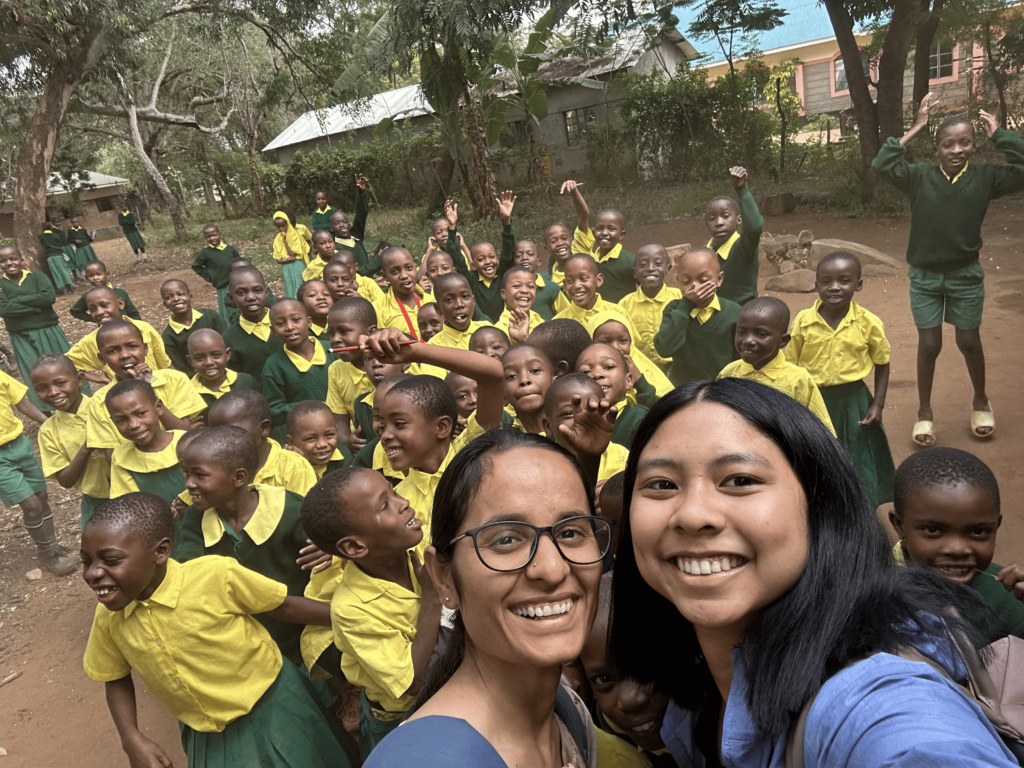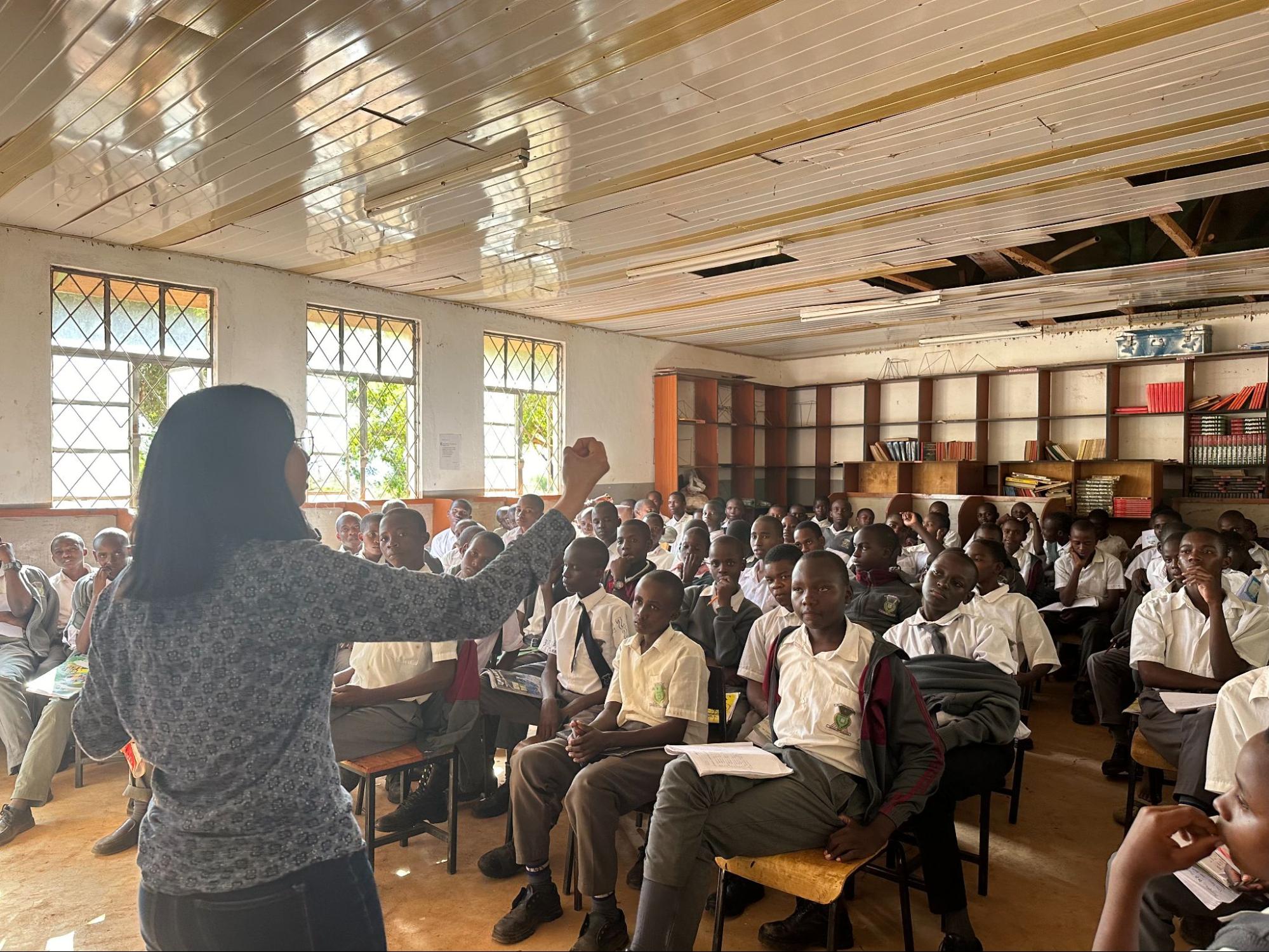Kevin Kung has worked with Berkeley and the UC system for a long time.
He and the social enterprise he co-founded, Takachar, which converts agricultural waste biomass into useful bioproducts, worked with Lawrence Berkeley National Laboratory through its Cyclotron Road fellowship for entrepreneurial innovators (now called Activate). Kung and Takachar went on to partner with Berkeley faculty and worked with various campus competition and internship programs.
But their beginnings in climate innovation were at the Blum Center.
“Our experience with the Blum Center actually goes back to 2015,” he says. “They were the first in the UC system to actually give us funding, through the Big Ideas Contest.”
Kung went on to win that academic year and got an up-close view of the breadth and depth of social-impact work facilitated by the Center. Nine years after joining Big Ideas@Berkeley, Kung and Takachar are returning the favor, now as a fellowship host through the California Climate Action Fellowships, a UC Berkeley program launched by the Blum Center and funded by a grant from the UC Office of the President and California legislature that pairs students with public agencies, private sector entities, community-based efforts, and non-profit organizations to support projects serving communities that are most vulnerable to climate change.
“We always enjoyed and were really inspired by the different projects the Blum Center has done,” Kung says. “We see this fellowship as another way to deepen that affiliation and also potentially provide an educational experience for students who may be looking for climate- and climate justice–related topics and can work at our site locally.”
‘Fighting for your children and your grandchildren’
For all the dangers that climate change has started unleashing on our planet — sea level rise, catastrophic weather events, invasive animal migrations — Daven Northroup-Kuder does not worry about the Earth’s future.
“The world will be fine; life will continue on,” the recent Master of Engineering graduate says. “It’s been through mass extinctions before.”
For Northroup-Kuder, who recently finished his Climate Action Fellowship with Takachar, it’s the human stakes — the impacts on those we care about, the consequences we can all relate to — that hit home the urgency of stopping the climate crisis.
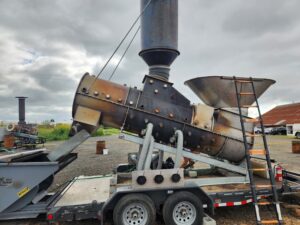
“You’re basically fighting for your children and your grandchildren and your great-grandchildren,” he says. “Making sure they don’t have perpetual asthma for their entire lives and having to breathe out of a respirator; having access to fresh drinking water and getting to see the beautiful ecosystems that you got to see.”
Before joining UC Berkeley, where he pursued business-focused bioengineering with an emphasis on synthetic biology, Northroup-Kuder studied microbiology and oceanography at the University of British Columbia and conducted research projects in fields ranging from molecular biology to geomicrobiology.
But in carving out a path where he could make meaningful contributions toward ensuring a prosperous future for humanity, he grew disillusioned with what he saw as a disconnect between academia and what happens on the ground, away from ivory-tower labs and classrooms. And government, he believes, can be a little too slow in effecting the change needed now.
He found the ideal middle ground via a social media post: The California Climate Action Fellowships was selecting its inaugural cohort of student fellows. In April, Northroup-Kuder started as a project engineer at Takachar.
‘Catalysts for driving innovative solutions’
Takachar tackles agricultural waste biomass: think the husks and cobs of corn that have no immediate use once the kernels are harvested. All that stuff has to go somewhere, and in many places, composting isn’t an efficient or realistic option. Plenty of farmers have resorted to simply burning this waste where it’s made.
Takachar produces small-scale tech and portable equipment that allows rural communities to self-sufficiently transform all this leftover crop and forest residue into bioproducts like nutrient-rich fertilizers, which come with a host of benefits for the health of these communities’ soil, crops, and surrounding ecosystems. The now-charcoalized waste reduces pollution and fires, while capturing carbon in a more durable form that decays more slowly than just composting.
“What’s unique about the fellowship program is it’s open to master’s students, who certainly bring another layer of experience that we normally don’t see,” says Kung, now Takachar’s CTO.
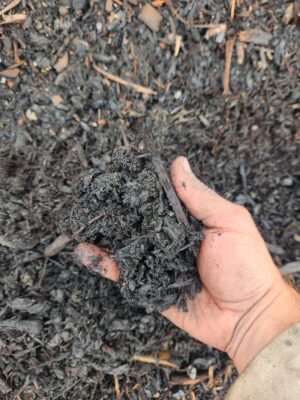
Students, with their fresh perspectives and indefatigable drive, are the “catalysts for driving innovative solutions to age-old challenges like food insecurity, health disparities, climate change, and poverty,” says Big Ideas director Phillip Denny. “Their ability to see the world through a new lens allows them to tackle these issues in ways that others may not have imagined or dared to pursue.”
By equipping students, Denny adds, with essential early-career resources — mentorship, skill development, even seed funding — “we’ve witnessed time and time again how their ‘big ideas’ can create a profoundly positive impact on individuals, communities, and our planet.”
Northroup-Kuder arrived at Takachar excited to join the team and to get to work in a wide variety of areas, some of them new to him, recalls operations lead Rod Kux.
“He showed really good interest and actual hands-on experience when we needed him, which was very refreshing,” Kux says, “He’s experienced; it’s not his first rodeo. He’s done a lot in his life.”
While finishing up his graduate classes, Northroup-Kuder put in two-to-three days a week on-site in Sonoma County, where the company is in the final stages of developing a bigger version of its equipment, which it plans to have on the market early next year. (Its existing model is already deployed in India.) As a project engineer, Northroup-Kuder would prototype and repair the machinery (wherein temperatures can hit 900 degrees Celsius), handle logistics, and jump on a variety of smaller side projects as they arose. He would load in the biomass one day and brainstorm ways out of technical hiccups the next.
“This experience has really taught me how important it is to actually get out in the field and practice stuff. I just can’t understate the importance of building the thing and getting out in the world and testing it,” he says. “You can do all these CAD designs and make it look perfect and pretty, but no plan survives first contact — in this scenario, first contact with the real world.”
‘A human-centered approach’
And getting out onto the front lines isn’t just about the technology, but also those for whom the technology is made, particularly end users in underserved communities.
“It’s not necessarily, ‘Let’s just build a state-of-the-art gadget and ship it in and hope for the best,’” Kung says. “But taking a human-centered approach and saying, ‘What are the most urgent needs and desires of the end users and prospective customers?’ How do we work with them to understand that and listen to them and their stories, such that when we do the engineering, we have those in mind and even have a collaborative, co-design process?”
Takachar asks many of its employees, regardless of job function, to work out on the front lines “because it’s really important to understand how that work gets into the bigger picture of environmental justice and climate justice, to understand how it’s really going to affect the people and be integrated into their lives,” Kung says. “That’s a skillset we’d like to see integrated into the next generation of the workforce.”
For Northroup-Kuder — part of the vanguard of that generation — the path to helping steer the future of our children, grandchildren, and great-grandchildren remains wide open. For now, he plans to work in industry and pursue climate-focused bioengineering.
“I really think the goal of creating a sustainable world,” he says, “will be built on the back of biotechnology” — a field he wants to make more accessible to more people.
“I’ve really been driven by that mission” to assure a healthy world for future generations, he adds. “The world needs help now. It doesn’t need help in 15 years when you finish up your publication.”

